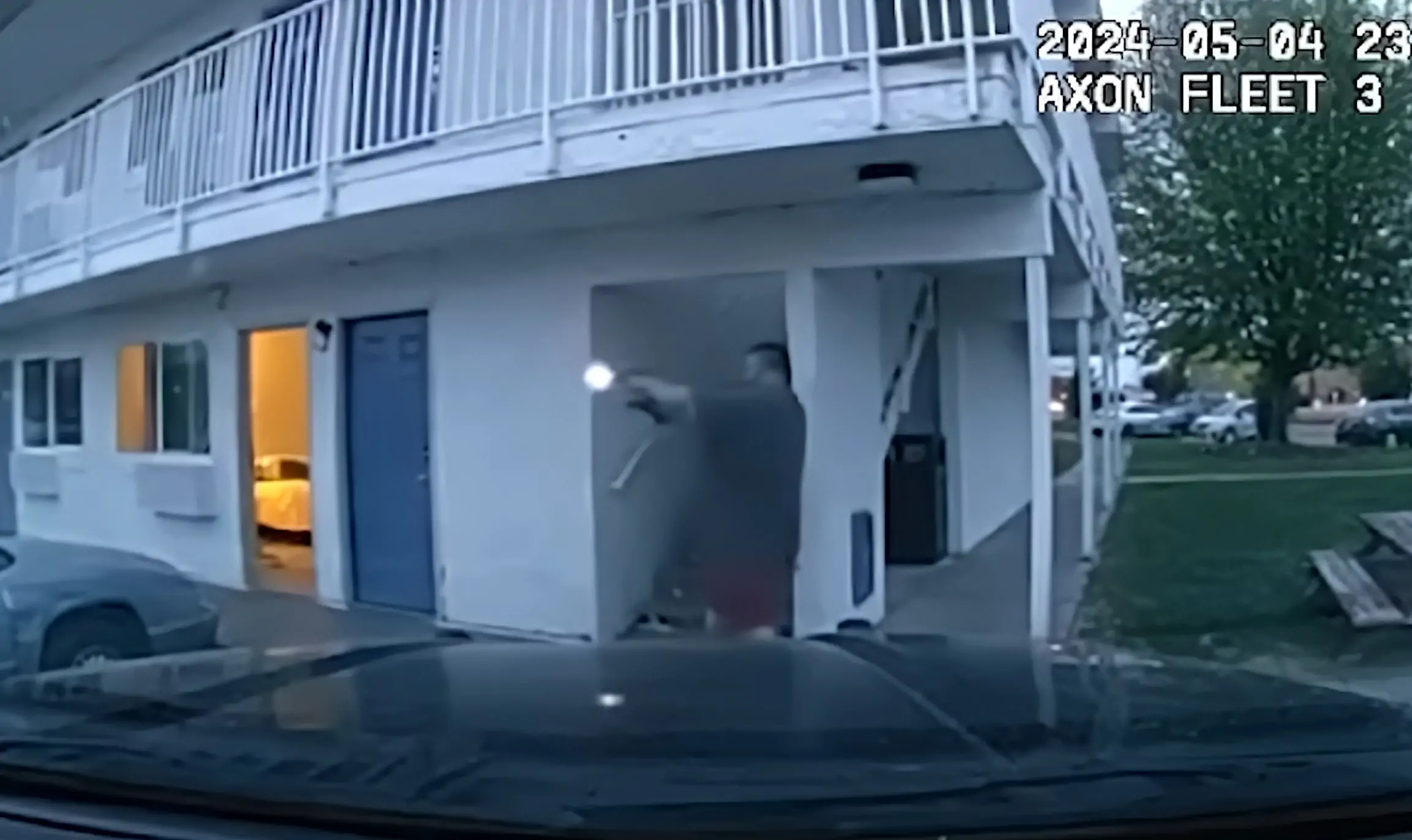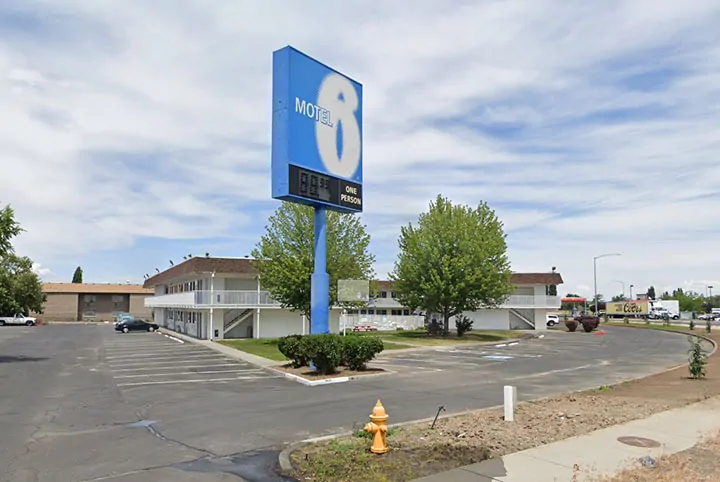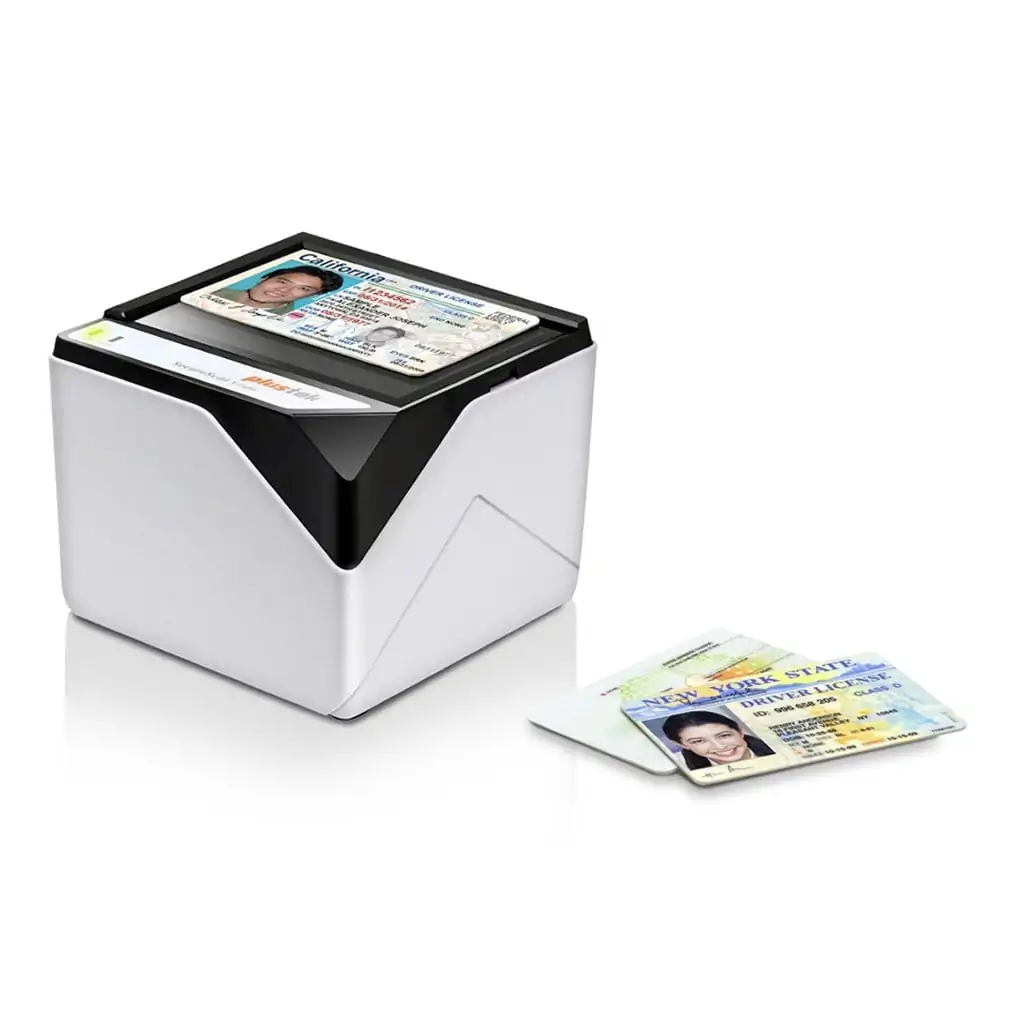
Enhancing Hospitality Security Through ID Scanning and Warrant Checks
Table of Contents
ToggleA Case Study from Moses Lake, Washington Motel 6
In the hospitality industry, the safety and security of guests and staff are paramount. Recent events in Moses Lake, Washington, underscore the critical need for robust security measures like ID scanning and warrant checks. By integrating advanced security technologies, hotels and motels can significantly mitigate risks, prevent severe incidents, and improve overall guest experiences, even in challenging situations.
The Incident at Motel 6 in Moses Lake
 On what began as a typical evening at the Motel 6 in Moses Lake, Washington, the atmosphere quickly shifted from routine to volatile, illustrating a chilling scenario that could unfold in any hospitality setting without adequate security measures. The sequence of events on that night not only sheds light on the critical need for improved safety protocols but also serves as a stark reminder of the potential dangers facing both guests and staff in the hospitality industry.
On what began as a typical evening at the Motel 6 in Moses Lake, Washington, the atmosphere quickly shifted from routine to volatile, illustrating a chilling scenario that could unfold in any hospitality setting without adequate security measures. The sequence of events on that night not only sheds light on the critical need for improved safety protocols but also serves as a stark reminder of the potential dangers facing both guests and staff in the hospitality industry.
The Escalation of Events
The incident commenced with a domestic disturbance call reported at approximately 8:20 p.m. The dispute involved 37-year-old Zachary Allen Stockton, who was staying at the motel. According to police reports and eyewitness accounts, Stockton had engaged in a heated argument with his girlfriend, during which he made threats to her life and brandished a firearm, escalating the situation to a critical level.
As tensions soared, the victim, fearing for her life, managed to send out a distress message to a contact, urging them to call 911. This act likely prevented the situation from worsening, allowing law enforcement to respond before any harm could be inflicted.
Law Enforcement’s Response
Responding to the urgent call, Sergeant Adam Munro of the Moses Lake Police Department was the first to arrive at the scene, accompanied by Officer Todd Taylor. Body camera footage from the officers captured the tense moments that followed. The footage shows Sergeant Munro attempting to defuse the situation through the motel room door, pleading with Stockton not to resort to violence. Despite these efforts, the standoff escalated when Stockton, armed and unpredictable, exited his room firing two guns indiscriminately.
The Exchange of Gunfire
What followed was a rapid exchange of gunfire. Stockton discharged multiple rounds, demonstrating a reckless disregard for human life. In the ensuing chaos, both Sergeant Munro and Officer Taylor were forced to return fire in defense of themselves and the surrounding civilians. The altercation concluded with Stockton being incapacitated and subsequently arrested by the responding officers.
During the exchange, Sergeant Munro sustained a gunshot wound through his foot, an injury that required surgical intervention. His experience as a veteran of the United States Air Force and a former member of a regional SWAT team undoubtedly played a role in managing the situation with the level of calm and professionalism that it demanded.
Security Lapses and Preventive Measures
This harrowing incident highlights critical security lapses within the hospitality industry, particularly concerning the monitoring and management of guest admittance. Had there been an effective system for ID scanning and warrant checks in place, it might have been possible to flag Stockton’s potentially dangerous background upon check-in. Such preemptive security screening could serve several vital functions:
- Immediate Risk Assessment: ID scanning can immediately identify individuals with a criminal history or active warrants, allowing hotel staff to take appropriate actions which could range from denying access to alerting local authorities.
- Preventive Action: With advance warning about a guest’s background, hotel management can prepare adequately, potentially preventing dangerous situations from arising.
- Assurance of Safety: For guests and staff alike, knowing that such security measures are in place can significantly enhance their sense of security, contributing to a safer, more controlled environment.
Impact on Guest Reviews and Property Ratings: A Closer Look
In the hospitality industry, guest reviews are a crucial metric influencing public perception and business success. Following the unfortunate incident at Motel 6 in Moses Lake, the property’s ratings on popular review platforms took a significant hit. This decline in guest satisfaction can be attributed to several key concerns highlighted in the aftermath, namely safety, cleanliness, and responsiveness of management.
Safety Concerns
The foremost issue brought to light by guest reviews was the safety of the environment. In the hospitality sector, the assurance of safety is paramount, especially for families with children. When incidents like shootings occur, they raise immediate red flags for potential guests. Concerns about the presence of firearms, the potential for violent incidents, and general safety for children in such environments can deter families from booking. Parents need to know that the environment is not only clean but also secure from any form of danger, both of which were called into question at this particular property.
Specific reviews highlight the severity of these concerns. One business traveler, Joseph, mentioned, “Shooting during my stay,” despite noting the cleanliness and service of the hotel. This reflects that even when other aspects are satisfactory, safety issues can heavily impact overall perceptions.
Another guest, Jadyn, traveling with family, gave a damning review, “There was a shooting at the motel while staying. There was also extremely loud music that went on for hours starting around 2 am, and shortly following another fight that ended in a gun being drawn. Overall not a safe place to stay at all, and not a good place to get a good night’s rest.” This review underscores how safety issues not only affect the sense of security but also the overall experience, contributing to sleepless nights and a poor stay.
Safety concerns were not limited to the immediate threat of violence. Reviews also mentioned the surrounding area’s safety, noting issues like drug use in adjacent areas and the presence of dangerous debris, such as needles, which pose a significant risk to children. One guest, Adam, reported, “Let’s start off with the parking lot on the back side… there are people using drugs… if you have kids please for their safety carry them to the room due to needles people leave around.” These issues contribute to a feeling of insecurity that can linger long after the initial incident is resolved.
Cleanliness and Operational Management
Cleanliness is another critical area often highlighted in hotel reviews. In the case of Motel 6, guests reported unsatisfactory levels of cleanliness, which, when coupled with safety concerns, can compound the sense of negligence. Issues like unattended trash, poorly maintained rooms, and inadequate supplies contribute to the overall experience of neglect that guests may feel during their stay.
One review mentioned, “The room we had the toilet was broken and would not quit running and flushing every 15-20 minutes. The fan cover was not installed properly and was dirty and spitting out dust all over.” Such details paint a picture of poor maintenance and attention to detail, which are crucial for guest comfort and satisfaction.
The response of the property’s management team is equally crucial. In crises, the effectiveness and speed of the management’s response can significantly influence guest perceptions. Unfortunately, reviews indicated a lack of prompt and effective response from management. One review pointed out, “When we went to the front desk the staff had no manager and told us that we need to call corporate and wouldn’t tell us anything else.” Such instances of unresponsive or ill-equipped management can lead to frustration and negative reviews, further impacting the hotel’s reputation.
Implementing Stringent Security Measures
To address these multifaceted issues, implementing more stringent security measures, such as ID scanning and warrant checks, is essential. These systems serve multiple purposes:
- Preventative Measures: By ensuring that all guests are scanned and checked for any legal discrepancies or outstanding warrants, hotels can prevent individuals with a potential for causing disturbances from staying at the property.
- Building Trust: Demonstrating a commitment to safety can significantly reassure guests, particularly families with young children, about the seriousness with which a property treats guest security.
- Operational Success: Beyond safety, integrating advanced security measures can streamline operations, reduce incidents that require management intervention, and improve overall guest satisfaction.
Understanding ID Scanning Technology
What is ID Scanning?
ID scanning technology allows hotels and other hospitality venues to quickly and efficiently verify a guest’s identity during the check-in process. This technology not only streamlines administrative procedures but also enhances security by verifying the authenticity of identification documents and checking the information against public records and databases.
Benefits of ID Scanning in Hospitality:
- Enhanced Security: Immediate identification of individuals with a criminal background or outstanding warrants.
- Improved Operational Efficiency: Faster check-in processes and reduced manual errors.
- Legal Compliance: Ensures compliance with local and federal laws regarding guest registration.
- Guest Assurance: Increases guest confidence in the property’s commitment to safety.
Warrant Checks: A Necessary Step for Safety
Integrating warrant checks as part of the ID scanning process provides an additional layer of security. By identifying individuals with outstanding warrants, properties can take proactive measures to either deny access or inform local authorities, potentially preventing the escalation of any criminal activities or disturbances.
Case Study: Preventing Incidents and Protecting Reputation
The incident at Motel 6 could have been avoided with the use of advanced ID scanning systems equipped with warrant checks. For instance, if the property had the capability to scan IDs and check for warrants during the check-in process:
- Early Detection: Stockton could have been flagged for his outstanding warrant, allowing staff to alert local authorities in a controlled manner before any threat escalated.
- Preventive Measures: With prior knowledge of a guest’s background, hotel management could take appropriate measures to ensure the safety of all other guests and staff.
- Maintaining Property Reputation: Effective security measures prevent incidents that can lead to negative reviews and damage to the property’s reputation.
The Way Forward for Hospitality Security
Incorporating Advanced Technologies:
- Integration of ID Scanning Solutions: Hotels should consider systems that can integrate seamlessly with existing property management systems for efficient operations.
- Routine Staff Training: Regular training sessions for staff to handle security protocols effectively, including the proper use of technology to identify and manage potential threats.
- Guest Communication: Transparent communication with guests about security measures in place, enhancing their confidence in the property’s commitment to safety.

The integration of ID scanning and warrant check systems in the hospitality industry represents a critical investment in safety and security. As demonstrated by the incident in Moses Lake, these technologies can significantly mitigate risks and enhance the overall guest experience. By prioritizing security, hotels not only protect their guests and staff but also their own reputation and operational success in the competitive hospitality market.

